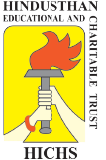
CARDIOPULMONARY PERFUSION CARE TECHNOLOGY/ABOUT COURSE
About Course
The Cardio Pulmonary Perfusion Care Technologycourse offers specialized training for students aiming to become experts in the field of life-saving cardiac care. One of the key areas of focus is Extracorporeal Membrane Oxygenation (ECMO), a vital technique used to support patients with severe cardiac and respiratory failure. ECMO machines temporarily take over the function of the heart and lungs when they are unable to perform adequately, offering a bridge to recovery or additional treatments. Through this course, students gain the technical knowledge to operate ECMO systems, learning to maintain crucial levels of oxygenation in the blood and remove carbon dioxide when traditional mechanical ventilation or heart-lung bypass machines are insufficient. ECMO expertise is often critical in intensive care situations, including severe respiratory distress and heart failure cases.
The course also delves into cardiovascular pathophysiology, helping students develop an in-depth understanding of the heart, blood vessels, and the diseases affecting these systems. A solid grasp of this subject is essential for perfusionists, as they often work closely with cardiologists and cardiac surgeons in diagnosing and managing conditions such as coronary artery disease, congenital heart defects, and peripheral vascular diseases. By understanding how cardiovascular diseases develop and progress, students can make more informed decisions during surgical and interventional procedures.
A major component of the program is the operation of the heart-lung machine, a crucial device used during open-heart surgeries. This machine temporarily assumes the function of both the heart and lungs, allowing surgeons to perform complex procedures such as coronary artery bypass grafting (CABG), valve replacement, and heart transplants. Students will receive comprehensive hands-on training in operating the heart-lung machine, learning to monitor and adjust critical parameters like blood flow, oxygen levels, and temperature, ensuring the patient’s stability throughout the surgery.
In addition to the practical skills, students will also learn advanced perfusion techniques, including the management of complex cases that may arise during cardiovascular surgeries. This includes dealing with emergencies such as unexpected bleeding, blood clotting issues, or the need for prolonged bypass support. Through this course, students will develop a professional attitude, technical skills, and decision-making abilities necessary to assist cardiac surgeons in conducting successful and uneventful open-heart surgeries, bypass operations, and heart transplants.
By the end of the course, graduates will be fully equipped to work as critical members of cardiac surgery teams, ensuring patient safety and contributing to life-saving procedures.
